Jeremiah 22 meaning explained in AI Summary
Jeremiah 22 is a scathing indictment of Judah's kings, specifically Jehoahaz, Jehoiakim, and Coniah (also known as Jehoiachin), for their injustice, idolatry, and oppression of the people. God, speaking through Jeremiah, pronounces judgment upon them and their lineage.
- Verses 1-9: Jeremiah is commanded to go to the palace and deliver a message of repentance. He reminds the king and his officials to act justly and righteously, to defend the oppressed, and to stop worshipping false gods. Failure to do so will bring destruction upon Jerusalem.
- Verses 10-12: A lament for Shallum (Jehoahaz), who was taken captive to Egypt after a short reign. He is described as someone who will never return.
- Verses 13-19: Jehoiakim is condemned for his extravagance and injustice. He built his palace through forced labor and ignored the cries of the poor. God declares that Jehoiakim will be buried like a donkey and his body will be left unmourned.
- Verses 20-30: Coniah (Jehoiachin), Jehoiakim's son, is also condemned despite being chosen by God. His reign will be short-lived, and he will be exiled to Babylon along with his family. God declares that Coniah will be childless and none of his descendants will sit on the throne of David.
Key Themes:
- Divine Justice: God holds leaders accountable for their actions, especially their treatment of the vulnerable.
- Consequences of Sin: Idolatry, injustice, and oppression have dire consequences, both for individuals and nations.
- The Davidic Covenant: While God remains faithful to his covenant with David, individual kings can be removed from the throne due to their unfaithfulness.
- Hope in Repentance: Throughout the chapter, there's an implicit call for repentance. While judgment is pronounced, the possibility of turning back to God and finding mercy is always present.
Overall, Jeremiah 22 serves as a stark warning against the dangers of pride, greed, and turning away from God. It highlights the importance of righteous leadership and the devastating consequences of neglecting justice and compassion.
Jeremiah 22 bible study ai commentary
Jeremiah 22 serves as a divine judgment against the corrupt royal house of Judah. It contrasts God’s standard of covenantal justice and righteousness with the selfish, oppressive, and idolatrous reigns of the last Davidic kings. Through a series of prophetic oracles against individual rulers—Shallum, Jehoiakim, and Coniah (Jehoiachin)—the chapter pronounces the irreversible doom of exile and declares the termination of their physical dynasty upon the throne of David, thereby exposing the failure of human kingship and creating the necessity for a future, truly righteous King.
Jeremiah 22 Context
These prophecies were delivered in the late 7th and early 6th centuries BC, a time of immense political turmoil for Judah. After the death of the righteous King Josiah in 609 BC, Judah fell under the control of regional superpowers, first Egypt and then Babylon. Jeremiah confronts Josiah's successors: Jehoahaz (Shallum), exiled to Egypt; Jehoiakim, a cruel and extravagant vassal king; and his son Jehoiachin (Coniah), who was deposed and exiled to Babylon in 597 BC. The chapter is a direct sermon on the responsibilities of kingship, indicting them for failing the core tenets of the Davidic Covenant: to execute justice (mishpat) and righteousness (tzedaqah).
Jeremiah 22:1-5
This is what the LORD says: “Go down to the palace of the king of Judah and proclaim this message there: ... If you are careful to carry out these commands, then kings who sit on David’s throne will come through the gates of this palace... But if you will not obey these commands, I swear by myself, declares the LORD, that this palace will become a ruin.”
In-depth-analysis
- Go down: Jeremiah is likely in the Temple, which sits higher than the king's palace. This command signifies a descent both physically and symbolically, confronting earthly power from a position of divine authority.
- The Foundation: Verses 3-4 lay out the non-negotiable basis for legitimate rule in Israel: executing justice and righteousness, delivering the oppressed, and protecting the vulnerable (alien, orphan, widow). This is the king's primary covenant duty.
- Conditional Blessing: The promise of continuity for the Davidic dynasty ("kings who sit on David's throne") is explicitly tied to obedience. This challenges any belief that the Davidic Covenant (2 Sam 7) was an unconditional blank check for individual kings.
- "I swear by myself": This is the strongest possible oath God can make (Heb 6:13), signifying the absolute certainty of the threatened judgment. The palace, a symbol of national pride and royal power, will become a desolate ruin (chorbah).
Bible references
- Deuteronomy 17:18-20: '...he is to read it all the days of his life so that he may learn to revere the LORD his God... and not consider himself better than his fellow Israelites...' (The Law of the King requires humility and obedience).
- 2 Samuel 7:14-16: 'I will be his father, and he will be my son. When he does wrong, I will punish him... But my love will never be taken away from him... Your house and your kingdom will endure forever.' (The tension between individual punishment and ultimate covenant faithfulness).
- Isaiah 1:17: 'Learn to do right; seek justice. Defend the oppressed. Take up the cause of the fatherless; plead the case of the widow.' (The consistent prophetic call for social justice).
Cross references
Micah 3:9-12 (leaders who build Zion with bloodshed), Prov 29:14 (king who judges the poor faithfully establishes his throne), Psa 82:2-4 (God's command to defend the weak).
Jeremiah 22:6-9
For this is what the LORD says about the palace of the king of Judah: “Though you are like Gilead to me, like the summit of Lebanon, I will surely make you a wilderness, a city not inhabited..." People from many nations will pass by this city and will ask one another, ‘Why has the LORD done such a thing to this great city?’ And the answer will be: ‘Because they have forsaken the covenant of the LORD their God and have worshiped and served other gods.’”
In-depth-analysis
- Gilead... Lebanon: These regions were famed for their lush forests (cedars of Lebanon), rich pasturelands, and beauty. God is saying, "Even though you were my treasured and beautiful creation, your value will not save you from judgment." It is a metaphor for prized status being stripped away.
- Holy Demolition: The "destroyers" (v. 7) are "consecrated" or "prepared" (qiddash). This is holy war terminology, but used in reverse. The agents of God's judgment (Babylon) are divinely commissioned for their destructive task.
- Catechism of Ruin: Verses 8-9 are structured as a question-and-answer, a common teaching device. It forces future generations and foreign onlookers to articulate the reason for Jerusalem's fall: not God's weakness, but Judah's covenant-breaking and idolatry.
Bible references
- Deuteronomy 29:24-28: 'All the nations will ask... "Why has the LORD done this to this land?" ...The LORD uprooted them from their land in fury... and thrust them into another land.' (Jeremiah directly echoes the covenant curses of Moses).
- 1 Kings 9:8-9: 'This temple will become a heap of rubble. All who pass by will be appalled... and they will answer, "Because they have forsaken the LORD their God..."' (The exact same warning given to Solomon at the dedication of the First Temple).
Cross references
Lev 26:31-33 (curses of desolation), 2 Chr 7:21-22 (parallel to 1 Kings 9), Isa 10:15 (the axe boasting against the one who wields it).
Jeremiah 22:10-12
Do not weep for the dead, nor bemoan him; Weep bitterly for him who goes away, for he will return no more, Nor see his native country. For thus says the LORD concerning Shallum the son of Josiah... ‘He shall not return there anymore...’
In-depth-analysis
- "The dead": This refers to King Josiah, who died honorably in battle (2 Kings 23:29). While his death was a tragedy, Jeremiah says it was a better fate.
- "Him who goes away": This is Shallum (also known as Jehoahaz). He reigned for only three months before being deposed by Pharaoh Neco and exiled to Egypt, where he died (2 Kings 23:31-34).
- A Fate Worse Than Death: Jeremiah reframes the national tragedy. To die in the land is an end; to be exiled is a living death, a hopeless state of being cut off from God's land and people forever. This introduces exile as the supreme punishment.
Bible references
- 2 Kings 23:30-34: '...the people of the land took Jehoahaz son of Josiah... but Pharaoh Neco put him in chains... and carried him off to Egypt, and there he died.' (The historical account of the events).
- Lamentations 5:2: 'Our inheritance has been turned over to strangers, our homes to foreigners.' (The fulfillment and emotional impact of exile).
Cross references
Eze 19:3-4 (a prophetic lament for Jehoahaz as a captured lion), 2 Chr 36:1-4 (parallel history).
Jeremiah 22:13-19
“Woe to him who builds his house by unrighteousness and his chambers by injustice, who uses his neighbor’s service without wages... But your eyes and your heart are for nothing but your covetousness... Therefore thus says the LORD concerning Jehoiakim... ‘He shall be buried with the burial of a donkey, dragged and cast out beyond the gates of Jerusalem.’”
In-depth-analysis
- Target: The "woe" oracle is aimed at Jehoiakim, Shallum's brother. He is condemned not just for idolatry but for gross social injustice and self-aggrandizing extravagance.
- Contrast with Josiah: Verse 15-16 create a powerful father-son contrast. "Did not your father eat and drink, and do justice and righteousness? Then it was well with him." Josiah's legitimacy ("knowing God") was proven by his care for the poor. Jehoiakim seeks legitimacy through luxurious building projects, funded by oppression (forced, unpaid labor).
- Knowing God: The text defines "knowing me" (v. 16) not as mystical experience or correct ritual, but as the active pursuit of justice and righteousness. Theology is inseparable from ethics.
- "Burial of a donkey": This is the ultimate indignity. A donkey that died would be unceremoniously dragged outside the city and left to rot. It means Jehoiakim will die without honor, without mourning, and without a proper burial—a horrific fate in the ancient world.
Bible references
- Deuteronomy 24:14-15: 'Do not take advantage of a hired worker... Pay them their wages each day before sunset... so that they will not cry out to the LORD against you...' (The direct violation of Torah law).
- Micah 3:10: '...who build up Zion with bloodshed, and Jerusalem with iniquity.' (A parallel critique of leaders who build through oppression).
- 2 Kings 24:6: So Jehoiakim rested with his ancestors. And Jehoiachin his son succeeded him. (This historical note seems to conflict with Jeremiah's prophecy. See Polemics below).
Polemics
The apparent contradiction between Jer 22:19 / 36:30 and 2 Kings 24:6 is a subject of much scholarly debate. Possible resolutions include:
- The phrase "rested with his ancestors" in Kings can be a formulaic statement for a king's death, not necessarily implying an honorable state burial.
- Josephus (a first-century historian) records that Nebuchadnezzar killed Jehoiakim and threw his body outside the city walls, which aligns with Jeremiah.
- The prophecy may be theological and hyperbolic, emphasizing the quality of his end—that he would die in total disgrace, whether his corpse was literally dragged or not. It conveys utter rejection by God and man.
Jeremiah 22:20-23
“Go up to Lebanon, and cry out... for all your lovers are destroyed. I spoke to you in your prosperity, but you said, ‘I will not listen.’ ...O inhabitant of Lebanon, who makes your nest in the cedars, how gracious you will be when pangs come upon you, the pain as of a woman in labor!”
In-depth-analysis
- Audience shift: Jeremiah now addresses the city of Jerusalem, personified as a woman.
- Lovers: This term is consistently used in the prophets to refer to political allies (like Egypt or Assyria) which were sought in place of trusting God. These alliances have all failed.
- "Inhabitant of Lebanon": This is a sarcastic title for the royal court and aristocracy of Jerusalem, who lived in opulent cedar-paneled houses (v. 14), imitating the styles of foreign powers and imagining themselves as secure as the cedars of Lebanon.
- Labor Pains: This common prophetic metaphor (Isa 13:8, Mic 4:9) signifies sudden, unavoidable, and agonizing distress. The feigned security of their cedar palaces will be shattered by the pangs of divine judgment.
Bible references
- Hosea 2:7: 'She will chase after her lovers but not catch them; she will look for them but not find them.' (The theme of unfaithful Israel seeking help from "lovers").
- 1 Thessalonians 5:3: 'While people are saying, "Peace and safety," destruction will come on them suddenly, as labor pains on a pregnant woman...' (The New Testament uses the same metaphor for the suddenness of judgment).
Cross references
Jer 30:6 (image of men in labor), Eze 16:37 (God gathering lovers to judge them), Isa 47:8-9 (judgment on prosperous, secure Babylon).
Jeremiah 22:24-30
“As I live,” says the LORD, “though Coniah the son of Jehoiakim... were the signet on My right hand, yet I would pluck you off... I will cast you out, and the mother who bore you... And this man Coniah shall be written down childless, a man who shall not prosper in his days; for none of his descendants shall prosper, sitting on the throne of David...”
In-depth-analysis
- Coniah: The third and final king judged in this chapter is Jehoiachin (called Coniah here, a diminutive form, possibly as a sign of contempt). He reigned only three months before being exiled to Babylon in 597 BC.
- "Signet on My right hand": The signet ring was a symbol of a king’s authority, identity, and authenticity. It was an extension of his very self. For God to call Coniah His signet ring, only to then violently "pluck him off," is the most powerful image of divine rejection possible. (Cf. Haggai 2:23 where God calls Zerubbabel His signet ring, a reversal of this curse).
- "Despised, shattered pot": An image of something that was once useful but is now utterly worthless and discarded.
- "Written down childless": This is the climax of the judgment. It does not mean he would have no biological children (Ezekiel saw him in Babylon, and 1 Chr 3:17-18 lists his sons). The meaning is dynastic: "childless" in the sense that none of his offspring would ever again "prosper, sitting on the throne of David." This oracle officially terminates the reigning Davidic monarchy.
Bible references
- Matthew 1:11-12: 'Josiah begot Jeconiah and his brothers about the time they were carried away to Babylon. And after they were brought to Babylon, Jeconiah begot Shealtiel...' (Matthew includes Jeconiah/Coniah in Jesus's legal lineage, showing the curse was about the earthly throne, not the bloodline).
- Haggai 2:23: '...‘I will take you, Zerubbabel... my servant,’ says the LORD, ‘and will make you like a signet ring, for I have chosen you...’' (Zerubbabel, a descendant of Coniah, becomes a post-exilic governor, partially reversing the curse and pointing toward a restored hope).
Polemics
The curse on Coniah is a critical theological juncture. It closes the book on the physical, political Davidic monarchy. By ending the line of kings on the earthly throne, God clears the way for a different kind of King. The fulfillment in Jesus, who has a legal right to the throne through this line (via Joseph) but does not sit on a physical throne in Jerusalem, perfectly resolves the tension. His Kingdom is "not of this world" (John 18:36), fulfilling the promise of David's heir in a greater, spiritual way that bypasses the curse.
Jeremiah chapter 22 analysis
- A Chiastic Structure of Judgment: The chapter can be seen as having an A-B-A structure:
- A (1-9): A general address to the whole house of David on the principle of justice.
- B (10-19): Specific oracles against two kings (Shallum, Jehoiakim).
- A' (20-30): An address to personified Jerusalem and the final king, Coniah, culminating in the end of the dynasty.
- Theology of Leadership: The central theological argument of the chapter is that political authority is a divine trust, delegated for the purpose of maintaining covenant faithfulness through the practice of justice (mishpat) and righteousness (tzedaqah). When rulers use their power for self-enrichment and oppression, they nullify their right to rule.
- From Bad to Worse: The sequence of judgments shows a downward spiral. Josiah dies honorably. Shallum suffers the "living death" of exile. Jehoiakim faces the indignity of a dishonorable death. Coniah receives the ultimate curse: the termination of his royal line on the throne of David. This progression highlights the increasing severity of God's judgment as the kings' corruption deepened.
- Preparing for the Messiah: By systematically deconstructing the authority of Judah's earthly kings and pronouncing their line defunct, Jeremiah 22 creates a theological vacuum. The failed shepherds and broken branches of chapter 22 make the promise of the "Righteous Branch" (Tzemach Tzedek) in Jeremiah 23:5-6 not just a hope, but a necessity. The chapter is the dark backdrop against which the Messianic light of the next chapter shines.
Jeremiah 22 summary
Jeremiah delivers a scathing series of prophetic judgments against Judah's final kings: Shallum, Jehoiakim, and Coniah. He condemns their abandonment of God's covenant demand for justice in favor of oppression and luxury. The oracles announce their personal fates of exile and dishonorable death, culminating in a divine curse that terminates the Davidic dynasty's reign on the earthly throne, thereby demonstrating the failure of human kingship and setting the stage for God's promised righteous King.
Jeremiah 22 AI Image Audio and Video
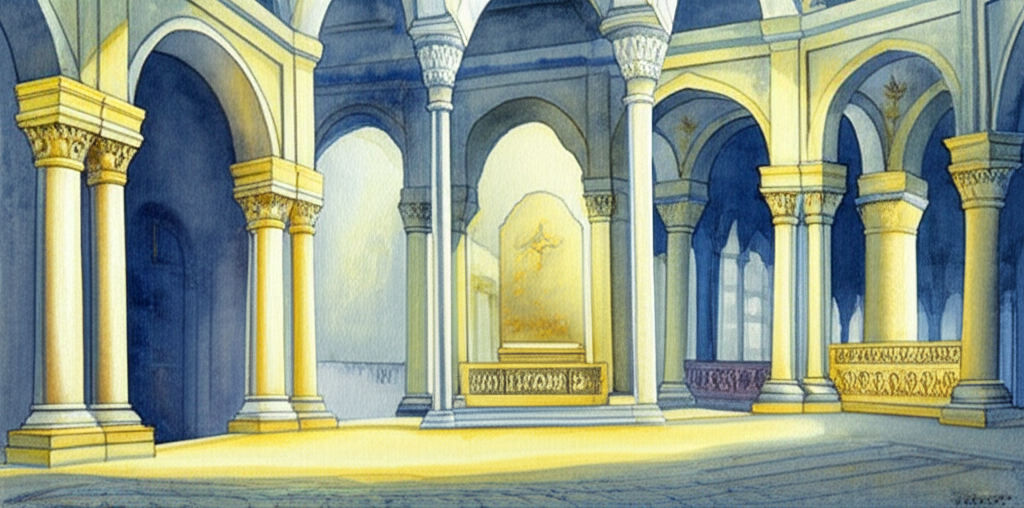
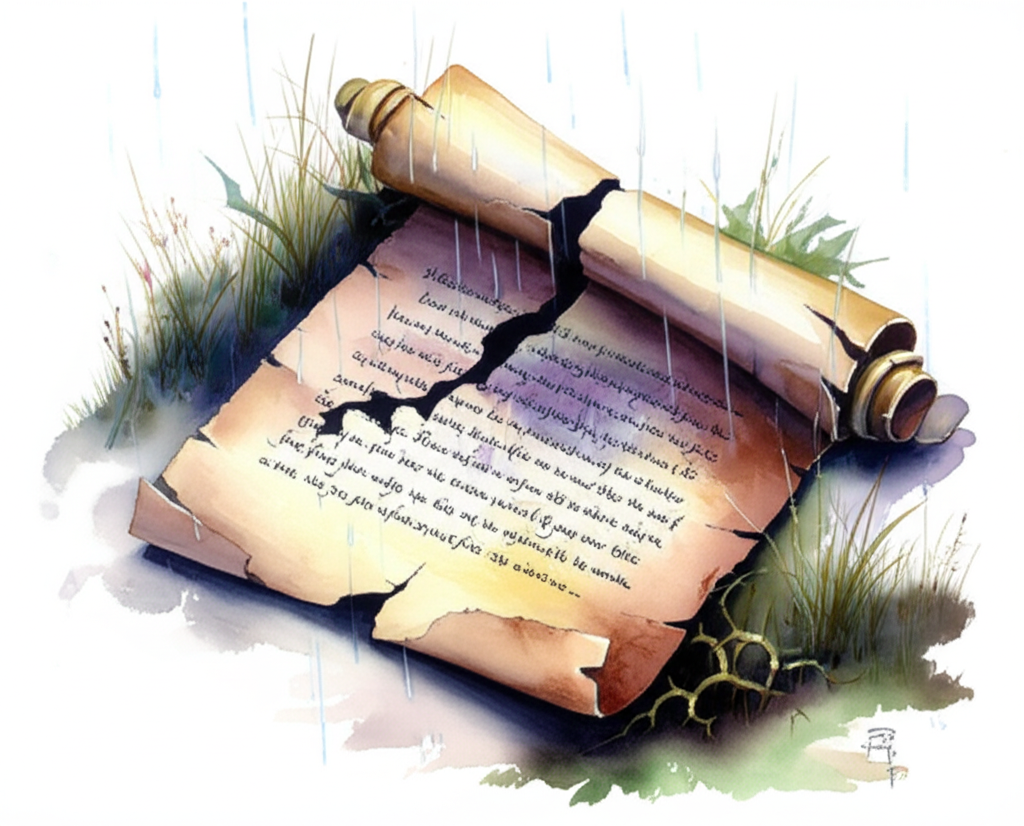
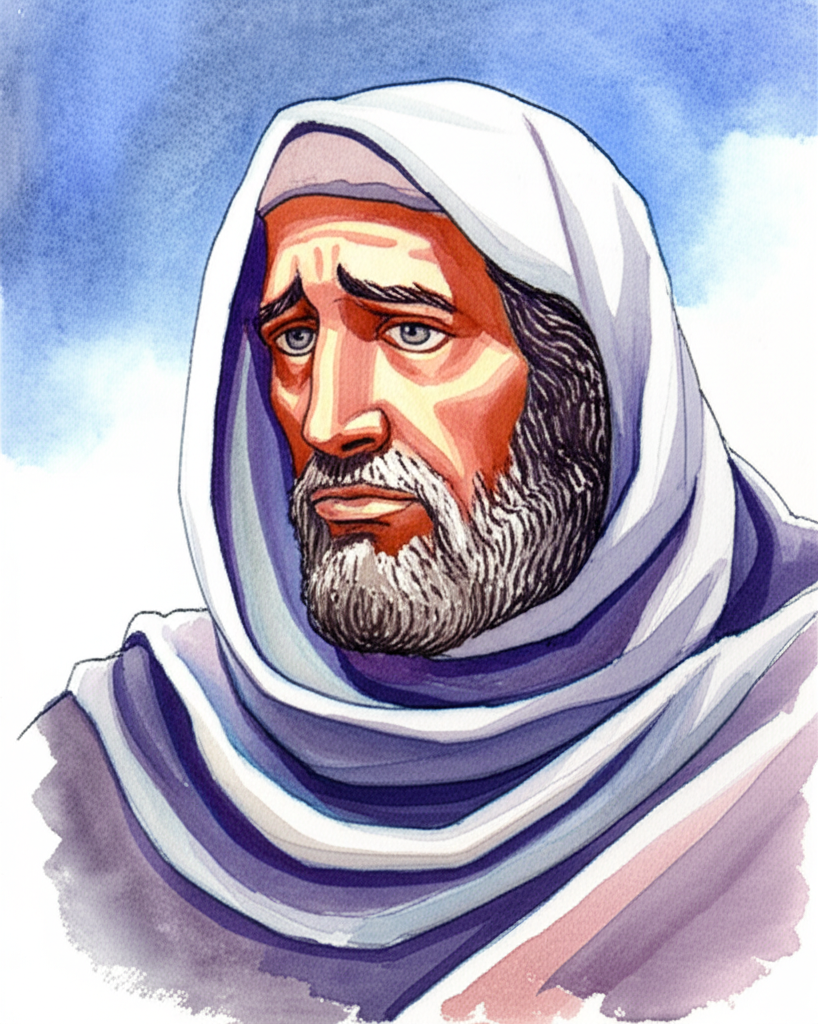
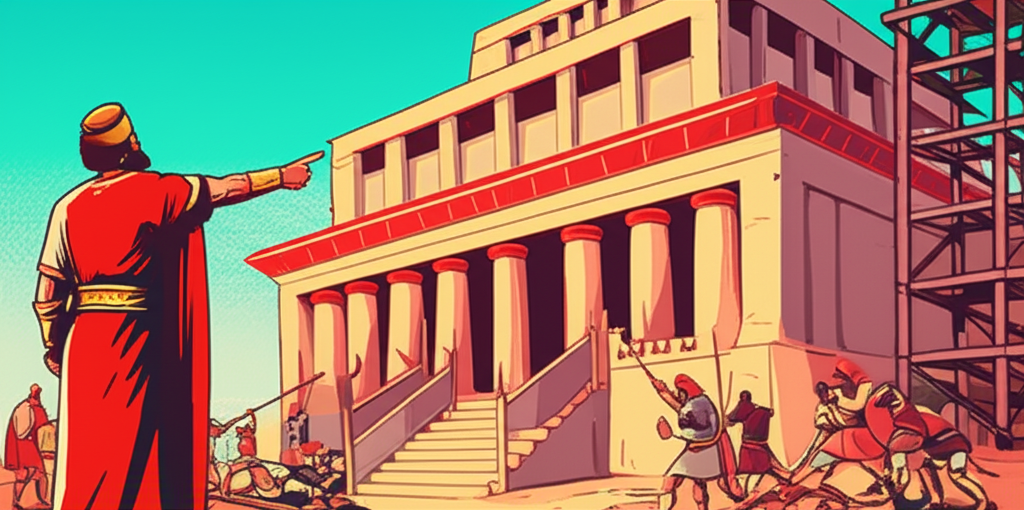
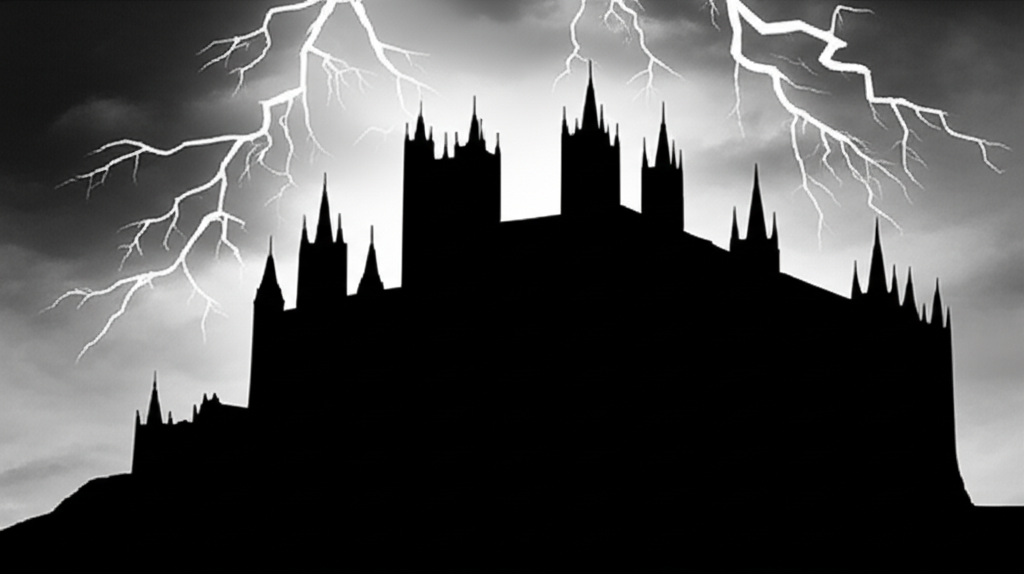
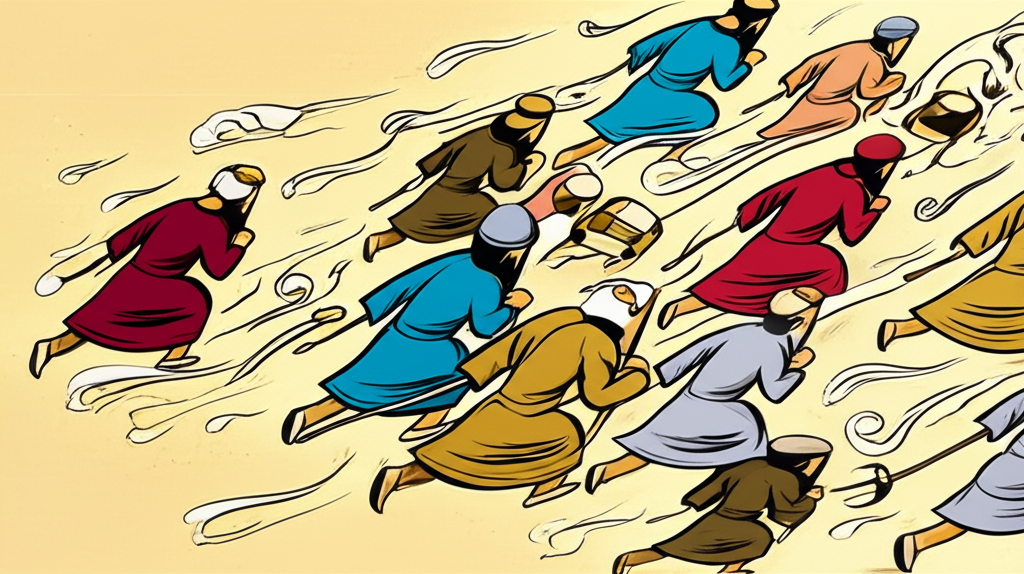


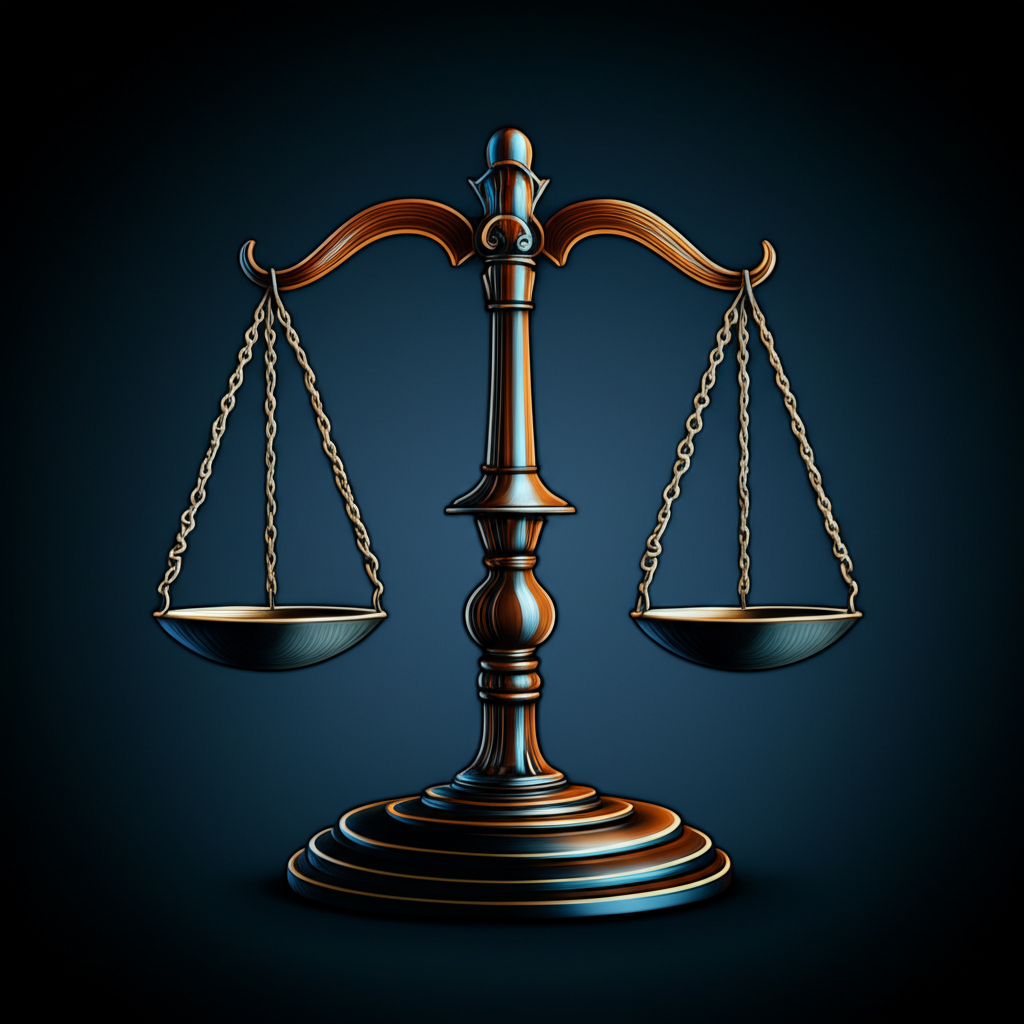
Jeremiah chapter 22 kjv
- 1 Thus saith the LORD; Go down to the house of the king of Judah, and speak there this word,
- 2 And say, Hear the word of the LORD, O king of Judah, that sittest upon the throne of David, thou, and thy servants, and thy people that enter in by these gates:
- 3 Thus saith the LORD; Execute ye judgment and righteousness, and deliver the spoiled out of the hand of the oppressor: and do no wrong, do no violence to the stranger, the fatherless, nor the widow, neither shed innocent blood in this place.
- 4 For if ye do this thing indeed, then shall there enter in by the gates of this house kings sitting upon the throne of David, riding in chariots and on horses, he, and his servants, and his people.
- 5 But if ye will not hear these words, I swear by myself, saith the LORD, that this house shall become a desolation.
- 6 For thus saith the LORD unto the king's house of Judah; Thou art Gilead unto me, and the head of Lebanon: yet surely I will make thee a wilderness, and cities which are not inhabited.
- 7 And I will prepare destroyers against thee, every one with his weapons: and they shall cut down thy choice cedars, and cast them into the fire.
- 8 And many nations shall pass by this city, and they shall say every man to his neighbour, Wherefore hath the LORD done thus unto this great city?
- 9 Then they shall answer, Because they have forsaken the covenant of the LORD their God, and worshipped other gods, and served them.
- 10 Weep ye not for the dead, neither bemoan him: but weep sore for him that goeth away: for he shall return no more, nor see his native country.
- 11 For thus saith the LORD touching Shallum the son of Josiah king of Judah, which reigned instead of Josiah his father, which went forth out of this place; He shall not return thither any more:
- 12 But he shall die in the place whither they have led him captive, and shall see this land no more.
- 13 Woe unto him that buildeth his house by unrighteousness, and his chambers by wrong; that useth his neighbour's service without wages, and giveth him not for his work;
- 14 That saith, I will build me a wide house and large chambers, and cutteth him out windows; and it is cieled with cedar, and painted with vermilion.
- 15 Shalt thou reign, because thou closest thyself in cedar? did not thy father eat and drink, and do judgment and justice, and then it was well with him?
- 16 He judged the cause of the poor and needy; then it was well with him: was not this to know me? saith the LORD.
- 17 But thine eyes and thine heart are not but for thy covetousness, and for to shed innocent blood, and for oppression, and for violence, to do it.
- 18 Therefore thus saith the LORD concerning Jehoiakim the son of Josiah king of Judah; They shall not lament for him, saying, Ah my brother! or, Ah sister! they shall not lament for him, saying, Ah lord! or, Ah his glory!
- 19 He shall be buried with the burial of an ass, drawn and cast forth beyond the gates of Jerusalem.
- 20 Go up to Lebanon, and cry; and lift up thy voice in Bashan, and cry from the passages: for all thy lovers are destroyed.
- 21 I spake unto thee in thy prosperity; but thou saidst, I will not hear. This hath been thy manner from thy youth, that thou obeyedst not my voice.
- 22 The wind shall eat up all thy pastors, and thy lovers shall go into captivity: surely then shalt thou be ashamed and confounded for all thy wickedness.
- 23 O inhabitant of Lebanon, that makest thy nest in the cedars, how gracious shalt thou be when pangs come upon thee, the pain as of a woman in travail!
- 24 As I live, saith the LORD, though Coniah the son of Jehoiakim king of Judah were the signet upon my right hand, yet would I pluck thee thence;
- 25 And I will give thee into the hand of them that seek thy life, and into the hand of them whose face thou fearest, even into the hand of Nebuchadrezzar king of Babylon, and into the hand of the Chaldeans.
- 26 And I will cast thee out, and thy mother that bare thee, into another country, where ye were not born; and there shall ye die.
- 27 But to the land whereunto they desire to return, thither shall they not return.
- 28 Is this man Coniah a despised broken idol? is he a vessel wherein is no pleasure? wherefore are they cast out, he and his seed, and are cast into a land which they know not?
- 29 O earth, earth, earth, hear the word of the LORD.
- 30 Thus saith the LORD, Write ye this man childless, a man that shall not prosper in his days: for no man of his seed shall prosper, sitting upon the throne of David, and ruling any more in Judah.
Jeremiah chapter 22 nkjv
- 1 Thus says the LORD: "Go down to the house of the king of Judah, and there speak this word,
- 2 and say, 'Hear the word of the LORD, O king of Judah, you who sit on the throne of David, you and your servants and your people who enter these gates!
- 3 Thus says the LORD: "Execute judgment and righteousness, and deliver the plundered out of the hand of the oppressor. Do no wrong and do no violence to the stranger, the fatherless, or the widow, nor shed innocent blood in this place.
- 4 For if you indeed do this thing, then shall enter the gates of this house, riding on horses and in chariots, accompanied by servants and people, kings who sit on the throne of David.
- 5 But if you will not hear these words, I swear by Myself," says the LORD, "that this house shall become a desolation." ' "
- 6 For thus says the LORD to the house of the king of Judah: "You are Gilead to Me, The head of Lebanon; Yet I surely will make you a wilderness, Cities which are not inhabited.
- 7 I will prepare destroyers against you, Everyone with his weapons; They shall cut down your choice cedars And cast them into the fire.
- 8 And many nations will pass by this city; and everyone will say to his neighbor, 'Why has the LORD done so to this great city?'
- 9 Then they will answer, 'Because they have forsaken the covenant of the LORD their God, and worshiped other gods and served them.' "
- 10 Weep not for the dead, nor bemoan him; Weep bitterly for him who goes away, For he shall return no more, Nor see his native country.
- 11 For thus says the LORD concerning Shallum the son of Josiah, king of Judah, who reigned instead of Josiah his father, who went from this place: "He shall not return here anymore,
- 12 but he shall die in the place where they have led him captive, and shall see this land no more.
- 13 "Woe to him who builds his house by unrighteousness And his chambers by injustice, Who uses his neighbor's service without wages And gives him nothing for his work,
- 14 Who says, 'I will build myself a wide house with spacious chambers, And cut out windows for it, Paneling it with cedar And painting it with vermilion.'
- 15 "Shall you reign because you enclose yourself in cedar? Did not your father eat and drink, And do justice and righteousness? Then it was well with him.
- 16 He judged the cause of the poor and needy; Then it was well. Was not this knowing Me?" says the LORD.
- 17 "Yet your eyes and your heart are for nothing but your covetousness, For shedding innocent blood, And practicing oppression and violence."
- 18 Therefore thus says the LORD concerning Jehoiakim the son of Josiah, king of Judah: "They shall not lament for him, Saying, 'Alas, my brother!' or 'Alas, my sister!' They shall not lament for him, Saying, 'Alas, master!' or 'Alas, his glory!'
- 19 He shall be buried with the burial of a donkey, Dragged and cast out beyond the gates of Jerusalem.
- 20 "Go up to Lebanon, and cry out, And lift up your voice in Bashan; Cry from Abarim, For all your lovers are destroyed.
- 21 I spoke to you in your prosperity, But you said, 'I will not hear.' This has been your manner from your youth, That you did not obey My voice.
- 22 The wind shall eat up all your rulers, And your lovers shall go into captivity; Surely then you will be ashamed and humiliated For all your wickedness.
- 23 O inhabitant of Lebanon, Making your nest in the cedars, How gracious will you be when pangs come upon you, Like the pain of a woman in labor?
- 24 "As I live," says the LORD, "though Coniah the son of Jehoiakim, king of Judah, were the signet on My right hand, yet I would pluck you off;
- 25 and I will give you into the hand of those who seek your life, and into the hand of those whose face you fear?the hand of Nebuchadnezzar king of Babylon and the hand of the Chaldeans.
- 26 So I will cast you out, and your mother who bore you, into another country where you were not born; and there you shall die.
- 27 But to the land to which they desire to return, there they shall not return.
- 28 "Is this man Coniah a despised, broken idol? A vessel in which is no pleasure? Why are they cast out, he and his descendants, And cast into a land which they do not know?
- 29 O earth, earth, earth, Hear the word of the LORD!
- 30 Thus says the LORD: 'Write this man down as childless, A man who shall not prosper in his days; For none of his descendants shall prosper, Sitting on the throne of David, And ruling anymore in Judah.' "
Jeremiah chapter 22 niv
- 1 This is what the LORD says: "Go down to the palace of the king of Judah and proclaim this message there:
- 2 'Hear the word of the LORD to you, king of Judah, you who sit on David's throne?you, your officials and your people who come through these gates.
- 3 This is what the LORD says: Do what is just and right. Rescue from the hand of the oppressor the one who has been robbed. Do no wrong or violence to the foreigner, the fatherless or the widow, and do not shed innocent blood in this place.
- 4 For if you are careful to carry out these commands, then kings who sit on David's throne will come through the gates of this palace, riding in chariots and on horses, accompanied by their officials and their people.
- 5 But if you do not obey these commands, declares the LORD, I swear by myself that this palace will become a ruin.'?"
- 6 For this is what the LORD says about the palace of the king of Judah: "Though you are like Gilead to me, like the summit of Lebanon, I will surely make you like a wasteland, like towns not inhabited.
- 7 I will send destroyers against you, each man with his weapons, and they will cut up your fine cedar beams and throw them into the fire.
- 8 "People from many nations will pass by this city and will ask one another, 'Why has the LORD done such a thing to this great city?'
- 9 And the answer will be: 'Because they have forsaken the covenant of the LORD their God and have worshiped and served other gods.'?"
- 10 Do not weep for the dead king or mourn his loss; rather, weep bitterly for him who is exiled, because he will never return nor see his native land again.
- 11 For this is what the LORD says about Shallum son of Josiah, who succeeded his father as king of Judah but has gone from this place: "He will never return.
- 12 He will die in the place where they have led him captive; he will not see this land again."
- 13 "Woe to him who builds his palace by unrighteousness, his upper rooms by injustice, making his own people work for nothing, not paying them for their labor.
- 14 He says, 'I will build myself a great palace with spacious upper rooms.' So he makes large windows in it, panels it with cedar and decorates it in red.
- 15 "Does it make you a king to have more and more cedar? Did not your father have food and drink? He did what was right and just, so all went well with him.
- 16 He defended the cause of the poor and needy, and so all went well. Is that not what it means to know me?" declares the LORD.
- 17 "But your eyes and your heart are set only on dishonest gain, on shedding innocent blood and on oppression and extortion."
- 18 Therefore this is what the LORD says about Jehoiakim son of Josiah king of Judah: "They will not mourn for him: 'Alas, my brother! Alas, my sister!' They will not mourn for him: 'Alas, my master! Alas, his splendor!'
- 19 He will have the burial of a donkey? dragged away and thrown outside the gates of Jerusalem."
- 20 "Go up to Lebanon and cry out, let your voice be heard in Bashan, cry out from Abarim, for all your allies are crushed.
- 21 I warned you when you felt secure, but you said, 'I will not listen!' This has been your way from your youth; you have not obeyed me.
- 22 The wind will drive all your shepherds away, and your allies will go into exile. Then you will be ashamed and disgraced because of all your wickedness.
- 23 You who live in 'Lebanon,' who are nestled in cedar buildings, how you will groan when pangs come upon you, pain like that of a woman in labor!
- 24 "As surely as I live," declares the LORD, "even if you, Jehoiachin son of Jehoiakim king of Judah, were a signet ring on my right hand, I would still pull you off.
- 25 I will deliver you into the hands of those who want to kill you, those you fear?Nebuchadnezzar king of Babylon and the Babylonians.
- 26 I will hurl you and the mother who gave you birth into another country, where neither of you was born, and there you both will die.
- 27 You will never come back to the land you long to return to."
- 28 Is this man Jehoiachin a despised, broken pot, an object no one wants? Why will he and his children be hurled out, cast into a land they do not know?
- 29 O land, land, land, hear the word of the LORD!
- 30 This is what the LORD says: "Record this man as if childless, a man who will not prosper in his lifetime, for none of his offspring will prosper, none will sit on the throne of David or rule anymore in Judah."
Jeremiah chapter 22 esv
- 1 Thus says the LORD: "Go down to the house of the king of Judah and speak there this word,
- 2 and say, 'Hear the word of the LORD, O king of Judah, who sits on the throne of David, you, and your servants, and your people who enter these gates.
- 3 Thus says the LORD: Do justice and righteousness, and deliver from the hand of the oppressor him who has been robbed. And do no wrong or violence to the resident alien, the fatherless, and the widow, nor shed innocent blood in this place.
- 4 For if you will indeed obey this word, then there shall enter the gates of this house kings who sit on the throne of David, riding in chariots and on horses, they and their servants and their people.
- 5 But if you will not obey these words, I swear by myself, declares the LORD, that this house shall become a desolation.
- 6 For thus says the LORD concerning the house of the king of Judah: "'You are like Gilead to me, like the summit of Lebanon, yet surely I will make you a desert, an uninhabited city.
- 7 I will prepare destroyers against you, each with his weapons, and they shall cut down your choicest cedars and cast them into the fire.
- 8 "'And many nations will pass by this city, and every man will say to his neighbor, "Why has the LORD dealt thus with this great city?"
- 9 And they will answer, "Because they have forsaken the covenant of the LORD their God and worshiped other gods and served them."'"
- 10 Weep not for him who is dead, nor grieve for him, but weep bitterly for him who goes away, for he shall return no more to see his native land.
- 11 For thus says the LORD concerning Shallum the son of Josiah, king of Judah, who reigned instead of Josiah his father, and who went away from this place: "He shall return here no more,
- 12 but in the place where they have carried him captive, there shall he die, and he shall never see this land again."
- 13 "Woe to him who builds his house by unrighteousness, and his upper rooms by injustice, who makes his neighbor serve him for nothing and does not give him his wages,
- 14 who says, 'I will build myself a great house with spacious upper rooms,' who cuts out windows for it, paneling it with cedar and painting it with vermilion.
- 15 Do you think you are a king because you compete in cedar? Did not your father eat and drink and do justice and righteousness? Then it was well with him.
- 16 He judged the cause of the poor and needy; then it was well. Is not this to know me? declares the LORD.
- 17 But you have eyes and heart only for your dishonest gain, for shedding innocent blood, and for practicing oppression and violence."
- 18 Therefore thus says the LORD concerning Jehoiakim the son of Josiah, king of Judah: "They shall not lament for him, saying, 'Ah, my brother!' or 'Ah, sister!' They shall not lament for him, saying, 'Ah, lord!' or 'Ah, his majesty!'
- 19 With the burial of a donkey he shall be buried, dragged and dumped beyond the gates of Jerusalem."
- 20 "Go up to Lebanon, and cry out, and lift up your voice in Bashan; cry out from Abarim, for all your lovers are destroyed.
- 21 I spoke to you in your prosperity, but you said, 'I will not listen.' This has been your way from your youth, that you have not obeyed my voice.
- 22 The wind shall shepherd all your shepherds, and your lovers shall go into captivity; then you will be ashamed and confounded because of all your evil.
- 23 O inhabitant of Lebanon, nested among the cedars, how you will be pitied when pangs come upon you, pain as of a woman in labor!"
- 24 "As I live, declares the LORD, though Coniah the son of Jehoiakim, king of Judah, were the signet ring on my right hand, yet I would tear you off
- 25 and give you into the hand of those who seek your life, into the hand of those of whom you are afraid, even into the hand of Nebuchadnezzar king of Babylon and into the hand of the Chaldeans.
- 26 I will hurl you and the mother who bore you into another country, where you were not born, and there you shall die.
- 27 But to the land to which they will long to return, there they shall not return."
- 28 Is this man Coniah a despised, broken pot, a vessel no one cares for? Why are he and his children hurled and cast into a land that they do not know?
- 29 O land, land, land, hear the word of the LORD!
- 30 Thus says the LORD: "Write this man down as childless, a man who shall not succeed in his days, for none of his offspring shall succeed in sitting on the throne of David and ruling again in Judah."
Jeremiah chapter 22 nlt
- 1 This is what the LORD said to me: "Go over and speak directly to the king of Judah. Say to him,
- 2 'Listen to this message from the LORD, you king of Judah, sitting on David's throne. Let your attendants and your people listen, too.
- 3 This is what the LORD says: Be fair-minded and just. Do what is right! Help those who have been robbed; rescue them from their oppressors. Quit your evil deeds! Do not mistreat foreigners, orphans, and widows. Stop murdering the innocent!
- 4 If you obey me, there will always be a descendant of David sitting on the throne here in Jerusalem. The king will ride through the palace gates in chariots and on horses, with his parade of attendants and subjects.
- 5 But if you refuse to pay attention to this warning, I swear by my own name, says the LORD, that this palace will become a pile of rubble.'"
- 6 Now this is what the LORD says concerning Judah's royal palace: "I love you as much as fruitful Gilead
and the green forests of Lebanon.
But I will turn you into a desert,
with no one living within your walls. - 7 I will call for wreckers,
who will bring out their tools to dismantle you.
They will tear out all your fine cedar beams
and throw them on the fire. - 8 "People from many nations will pass by the ruins of this city and say to one another, 'Why did the LORD destroy such a great city?'
- 9 And the answer will be, 'Because they violated their covenant with the LORD their God by worshiping other gods.'"
- 10 Do not weep for the dead king or mourn his loss.
Instead, weep for the captive king being led away!
For he will never return to see his native land again. - 11 For this is what the LORD says about Jehoahaz, who succeeded his father, King Josiah, and was taken away as a captive: "He will never return.
- 12 He will die in a distant land and will never again see his own country."
- 13 And the LORD says, "What sorrow awaits Jehoiakim,
who builds his palace with forced labor.
He builds injustice into its walls,
for he makes his neighbors work for nothing.
He does not pay them for their labor. - 14 He says, 'I will build a magnificent palace
with huge rooms and many windows.
I will panel it throughout with fragrant cedar
and paint it a lovely red.' - 15 But a beautiful cedar palace does not make a great king!
Your father, Josiah, also had plenty to eat and drink.
But he was just and right in all his dealings.
That is why God blessed him. - 16 He gave justice and help to the poor and needy,
and everything went well for him.
Isn't that what it means to know me?"
says the LORD. - 17 "But you! You have eyes only for greed and dishonesty!
You murder the innocent,
oppress the poor, and reign ruthlessly." - 18 Therefore, this is what the LORD says about Jehoiakim, son of King Josiah: "The people will not mourn for him, crying to one another,
'Alas, my brother! Alas, my sister!'
His subjects will not mourn for him, crying,
'Alas, our master is dead! Alas, his splendor is gone!' - 19 He will be buried like a dead donkey ?
dragged out of Jerusalem and dumped outside the gates! - 20 Weep for your allies in Lebanon.
Shout for them in Bashan.
Search for them in the regions east of the river.
See, they are all destroyed.
Not one is left to help you. - 21 I warned you when you were prosperous,
but you replied, 'Don't bother me.'
You have been that way since childhood ?
you simply will not obey me! - 22 And now the wind will blow away your allies.
All your friends will be taken away as captives.
Surely then you will see your wickedness and be ashamed. - 23 It may be nice to live in a beautiful palace
paneled with wood from the cedars of Lebanon,
but soon you will groan with pangs of anguish ?
anguish like that of a woman in labor. - 24 "As surely as I live," says the LORD, "I will abandon you, Jehoiachin son of Jehoiakim, king of Judah. Even if you were the signet ring on my right hand, I would pull you off.
- 25 I will hand you over to those who seek to kill you, those you so desperately fear ? to King Nebuchadnezzar of Babylon and the mighty Babylonian army.
- 26 I will expel you and your mother from this land, and you will die in a foreign country, not in your native land.
- 27 You will never again return to the land you yearn for.
- 28 "Why is this man Jehoiachin like a discarded, broken jar?
Why are he and his children to be exiled to a foreign land? - 29 O earth, earth, earth!
Listen to this message from the LORD! - 30 This is what the LORD says:
'Let the record show that this man Jehoiachin was childless.
He is a failure,
for none of his children will succeed him on the throne of David
to rule over Judah.'
- Bible Book of Jeremiah
- 1 The Call of Jeremiah
- 2 Israel Forsakes the Lord
- 3 Faithless Israel Called to Repentance
- 4 Disaster from the North
- 5 Jerusalem Refused to Repent
- 6 Impending Disaster for Jerusalem
- 7 Evil in the Land
- 8 Sin and Treachery
- 9 Oh that my head were waters, and my eyes a fountain of tears, that I might weep
- 10 Idols and the Living God
- 11 The Broken Covenant
- 12 Jeremiah's Complaint
- 13 The Ruined Loincloth
- 14 Famine, Sword, and Pestilence
- 15 The Lord Will Not Relent
- 16 Famine, Sword, and Death
- 17 The Sin of Judah
- 18 The Potter and Clay
- 19 The Broken Flask
- 20 Jeremiah Persecuted by Pashhur
- 21 Jerusalem Will Fall to Nebuchadnezzar
- 22 Message to the evil Kings
- 23 The Righteous Branch
- 24 The Good Figs and the Bad Figs
- 25 Seventy Years of Captivity
- 26 Jeremiah Threatened with Death
- 27 The Yoke of Nebuchadnezzar
- 28 Hananiah the False Prophet
- 29 Jeremiah's Letter to the Exiles
- 30 Restoration for Israel and Judah
- 31 The Lord Will Turn Mourning to Joy
- 32 Jeremiah Buys a Field During the Siege
- 33 The Lord Promises Peace
- 34 Zedekiah to Die in Babylon
- 35 The Faithful Rechabites
- 36 Jehoiakim Burns Jeremiah's Scroll
- 37 King Zedekiah's vain hope
- 38 Jeremiah Cast into the Cistern
- 39 The Fall of Jerusalem
- 40 Jeremiah Remains in Judah
- 41 Gedaliah Murdered
- 42 Warning Against Going to Egypt
- 43 Jeremiah Taken to Egypt
- 44 Judgment for Idolatry
- 45 Message to Baruch
- 46 Judgment on Egypt
- 47 Judgment on the Philistines
- 48 Judgment on Moab
- 49 Judgment on Ammon
- 50 Judgment on Babylon
- 51 The Utter Destruction of Babylon
- 52 The Fall of Jerusalem Recounted